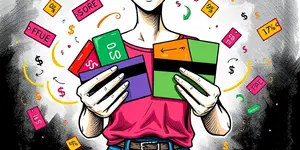
Credit card disputes can feel overwhelming, but understanding your rights and the process empowers you to act with confidence. This comprehensive guide will walk you through federal protections, dispute steps, and practical tips to ensure your financial well-being.
When unauthorized charges or billing errors appear on your statement, you are not powerless. Under the rights under the Fair Credit Billing Act, you have the authority to dispute incorrect transactions. The protections afforded by Regulation Z add further safeguards, especially for goods and services disputes.
You also have the ability to withhold payment on disputed amounts while your issuer investigates. This ensures you are not forced to pay questionable charges pending resolution.
Acting promptly is critical. Federal law sets strict timeframes:
Disputes should be filed in writing for full Fair Credit Billing Act protections, but many issuers now accept online or phone claims. Always confirm your card’s policy to avoid missed deadlines.
During the investigation, you may receive a temporary credit for the disputed amount. If the charge is found valid, it will be reinstated; if not, the credit becomes permanent.
Federal law prohibits negative credit reporting while a dispute is active, ensuring your credit score remains intact. You can also request the evidence your issuer used in deciding your case if your claim is denied.
In many situations, you can assert the same claims against your card issuer that you have against a merchant, provided you made a good faith effort to resolve the issue directly. This dual-layer protection against merchant disputes offers a powerful safety net.
By staying organized and proactive, you position yourself for the best possible dispute outcome.
If you need additional assistance, consider reaching out to your state’s consumer protection office or filing a complaint with the Consumer Financial Protection Bureau. Legal aid and credit counseling agencies also offer free or low-cost guidance.
Empowering yourself with knowledge and strong documentation transforms the dispute process from a daunting task into an opportunity to exercise your consumer rights confidently.
References













